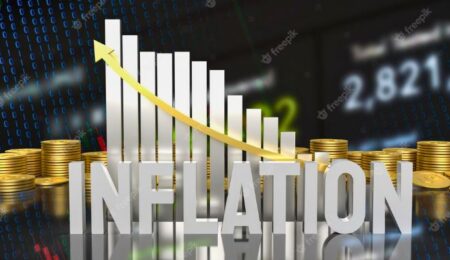…recommends steps to sustain long term positive momentum
The federal government’s decision to remove petrol subsidy and also unify the country’s exchange rate will result in a spike in the rate of inflation for June and July 2023, as an immediate consequence of both policies.
Yemi Kale, partner and chief economist, KPMG Nigeria noted this in a report made available to BusinessDay on Thursday, noting that the long term results will be better for the economy regardless of the anticipated short-term difficulties.
“We estimate that these developments will lead to an increase in the monthly rate of inflation by between 3.4 percent to 4.4 percent in June from 1.94 percent in May 2023, translating to an increase in headline inflation to within 24.4 percent to 25.6 percent for June and July 2023,” he said.
Nigeria’s annual inflation rate rose for the fifth straight month to 22.41 percent in May 2023 from 22.22 percent in the previous month, according to the latest inflation report from the National Bureau of Statistics.
He estimated that with a uniformed exchange rate, the FX rate will range within N650-750 per dollar in the near term and relative equilibrium will depend on how quickly supporting policies are introduced that also encourage and guarantee FX supply.
Following the announcement of the unified exchange rate by the CBN on Wednesday, the official I & E window closed at N664 per dollar as against N471 the previous day.
“By taking this bold yet risky decision, however, the gap in the official and parallel markets will likely narrow overtime, thereby eroding the FX gap and the opportunities for roundtripping as the arbitrage opportunity reduces; Furthermore, this will overtime encourage capital inflows from FPI, FDI and deepen the forward’s market,” he said.
Kale said there will be more incentive to bring in FX through net export proceeds from exporting companies and government owned agencies and home remittances, which will boost FX supply and will also improve government FX related revenue which helps to reduce debt growth and improve infrastructure expenditure.
Read also: FRCN, NGX RegCo boost stakeholders’ capacity on sustainable accounting standards
“This may, however, bare unintended consequences, such as a reduction in VAT and CIT should consumption expenditure shrink, resulting in a reduction in corporate earnings as demand for corporate goods and services decline; there might also be a possibility of increased costs to businesses from FX losses from having to deal with a higher FX rate in between the financial year they may not have anticipated and not planned for,” according to Kale who is also the former Nigeria’s Statistician General.
Other unintended consequences include worsening debt burden as total government debt in naira terms, debt to GDP and debt service ratios may worsen compared to immediate post PMS subsidy levels unless measures are urgently taken to boost revenue and further rationalise government expenditure.
“The price of PMS may also have to be adjusted upwards in the short term to consider the adjustment in the market FX rate, putting further pressure on inflation which may ultimately inch closer to 30 percent before the end of 2023, holding all other things constant, This may consequently lead to an increase in interest rates; Nigeria will move from the largest economy in Africa to the third behind Egypt and South-Africa with its GDP dropping from $504 billion to about $304 billion,” he said.
Kale said these decisions have inspired domestic and international confidence in the Nigerian economic environment and will likely support an imminent sovereign ratings upgrade.
He recommended that to sustain the positive momentum and atmosphere of cautious optimism currently being witnessed, it is important that clarity, especially relating to the remaining FX and monetary policy supporting structures, are worked out.
“This includes the role of the CBN as primary FX supplier and for FX supply to be properly decentralised; Furthermore, it is important government communicates and introduces erstwhile promised inflation support post PMS subsidy removal to minimise disruptions in consumer demand and business earnings,” he said.
He also advised the government to cut wasteful expenditure in order to bear the short term pains from needed restructuring and reforms.







